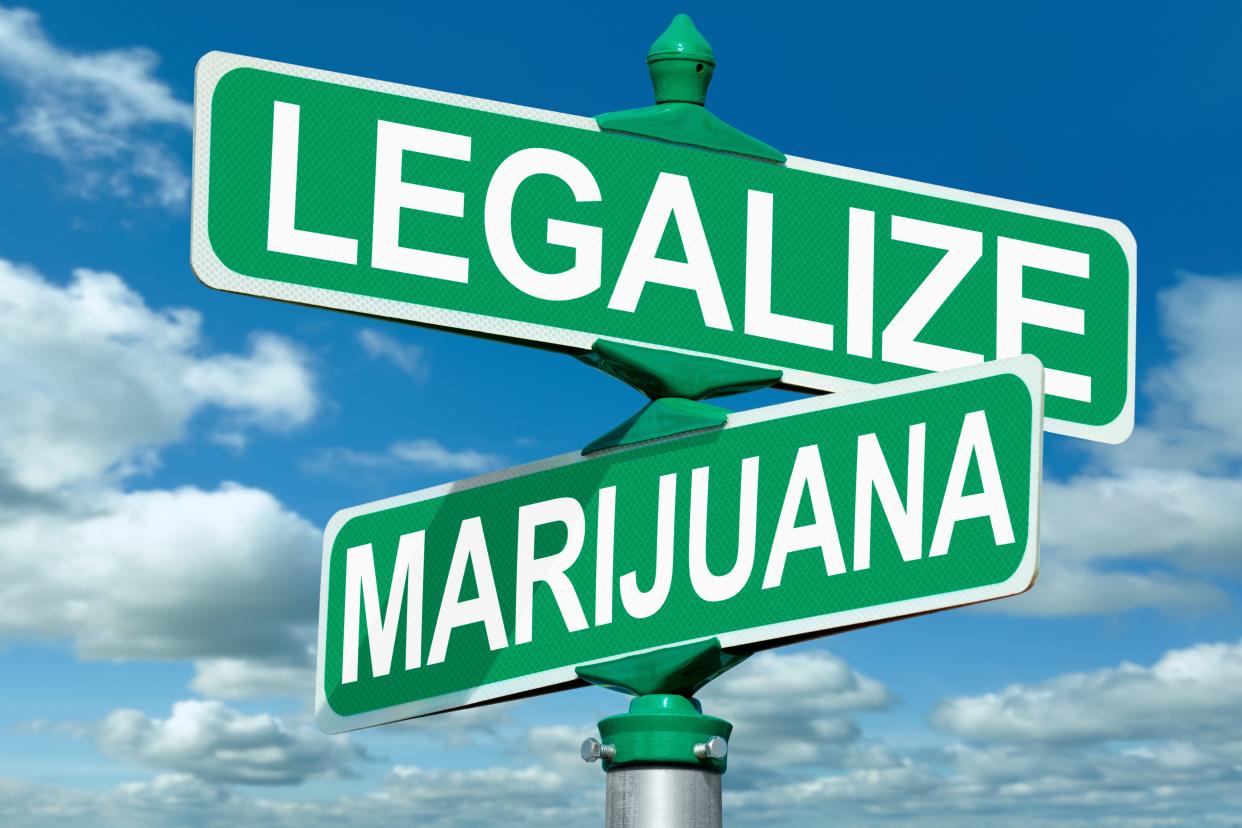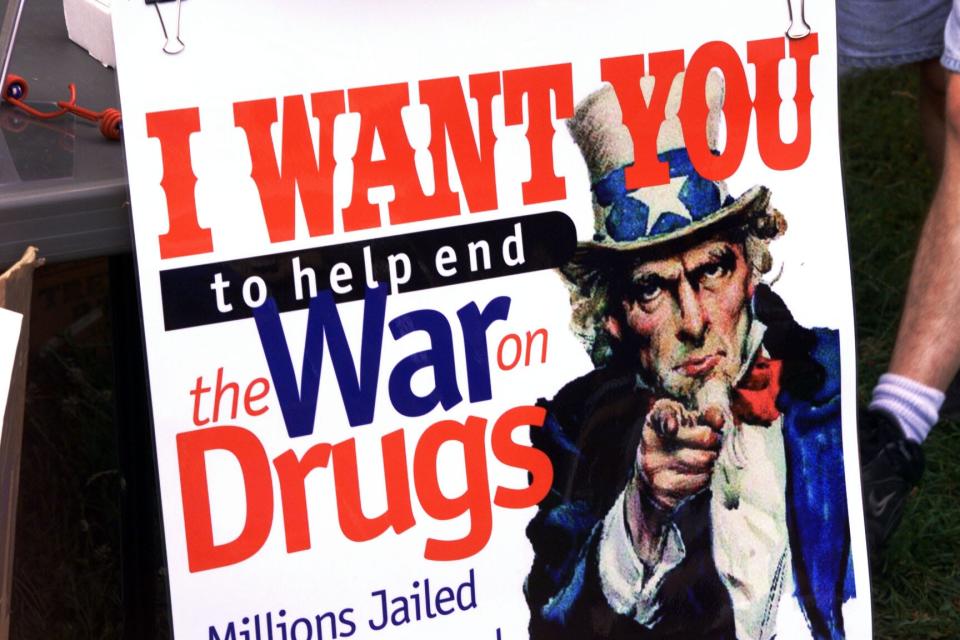Virginia marijuana legalization: What worked, what hasn't worked, and what's ahead in 2022

On April 8, Virginia became the first southern state to legalize the possession and use of marijuana by adults and the bill was signed into law July 1 by Gov. Ralph Northam.
"It is a huge day for equity in the commonwealth," said then-House Majority Leader Del. Charniele Herring, D-Alexandria, after an exhaustive legislative process putting together the 300-page bill that was introduced by Sen. Adam Ebbin and Senate President pro tempore Louise Lucas.
"Virginia is now the first state in the South to legalize recreational marijuana use, and I am so proud to have been able to carry this monumental legislation," said Herring.
But not everyone was supportive of the decision.
"We are sending a message to our kids that it is okay to do drugs in Virginia now," said Republican Sen. Amanda Chase of Chesterfield County. "As a mom of four young adults I don’t like that message. I think it is selfish. I think it is reckless, and I think it is irresponsible."
It's been almost six months since marijuana legalization became commonwealth law, but there is a major shift about to happen in Richmond combined with an 11th-hour reenactment clause coming up for the General Assembly session in 2022. What does this mean for the year ahead?
What worked
Record sealing
The primary principle of legalization is to reduce crime and end criminalization. Record sealing is one justice component that has happened. Marijuana infractions were automatically sealed on July 1. This follows the sealing of simple possession of marijuana records that were completed in 2020, according to the state agency website Cannabis in Virginia.
"And arguably, a cost savings to law enforcement by not chasing these minor infractions," said NORML’s Development Director JM Pedini, who also serves as executive director for the organization's state chapter, Virginia NORML.
According to an August 2021 report from the Virginia State Police, 333,806 records were sealed for simple possession. More than 64,651 charges of misdemeanor distribution were sealed, and approximately 395,747 entries of less serious infractions, invalid reports or non-mandatory reports were deleted altogether.
Larger record sealing (in court, local law enforcement and private databases) will occur after Virginia State Police and courts implement needed software updates, VSP said to members of the Virginia Cannabis Legislative Oversight Commission in August.
According to information provided by Sen. Ebbin’s office, Virginia State Police has begun work on that process, including meeting with relevant state entities and developing a scope of work to begin the public bidding process. The new database will replace a legacy database that is more than 30 years old and will improve data collection; provide unique capabilities to search, seal and/or expunge records while saving the commonwealth millions of dollars, according to the VSP.
By July 1, 2025, all records, including arrests, charges, and convictions for simple or misdemeanor possession with the intent to distribute marijuana will be automatically sealed across all state and private databases, according to the state agency website.
Personal cultivation
As of July 1, 2021, adults 21 years old and older are legally permitted to grow up to four marijuana plants per household for personal use but thanks to half-baked legislation no one can legally purchase the seeds or clone plants in the state to do so.
"I guess we’re kind of half-pregnant," said Republican Del. Glenn Davis of Virginia Beach.
There are no sales outside of the medical cannabis program, yet.
More: Where can you buy marijuana seeds legally in Virginia? Growing your own under new laws.
What hasn't worked
The reenactment clause
It requires the bill to pass again in the 2022 General Assembly session.
“The reenactment clause didn’t work for Virginians. Leaving licensing for a second session, leaving so many things unaddressed — that didn't work,” said Pedini.
Considered a bad decision by advocates for marijuana law reform, things got a little spicy on social media between Democratic Sen. Scott Surovell and the National Organization for the Reform of Marijuana Laws when the senator brought up a what-if scenario. There is only one what-if scenario, clapped back NORML — no reenactment clause.
@ssurovell Just imagine how different it would be if there were no reenactment clause added at the last minute in 2021. https://t.co/hzIgQowrrA
— NORML (@NORML) November 9, 2021
“With a divided government, reaching compromise is going to be all that more difficult,” said Pedini. “It was already difficult enough finding agreement amongst Democrats, and between the House and the Senate. Now we have to find a compromise not only between chambers, but between parties.”
Virginia Cannabis Control Authority
As part of last year's legislation, on July 1, the law authorized the creation of the Virginia Cannabis Control Authority, a new, independent panel to regulate the marijuana industry, issue business licenses, create health and safety guidelines and promote diversity within the industry.
Why hasn't it worked? Initially planned to convene six months ago, the state hasn't filled basic positions or hired a chief executive officer yet. On July 19, Northam appointed members to its board of directors. The board and future CEO are expected to lead the creation of an adult-use marketplace.
Job descriptions required to stand up the state’s agency have been posted, but it appears they are having a difficult time finding its chief executive officer because of the change in the administration. Someone could accept the six-figure salaried position and be fired when Gov.-elect Glenn Youngkin takes office in January.
The News Leader reached out on Dec. 1 and Dec. 6 to Sen. Jeremy McPike, D-Prince William, chairman of the Senate Rehabilitation and Social Services Subcommittee on Marijuana and to Del. Will Morefield, R-Tazewell, who serves on the subcommittee as a member of the House for comment. We have not heard back.

Your support helps keep the lights on at The News Leader. Stay connected with our stories, enterprise reporting and more by clicking "Subscribe" at the top of the page.
What does the 2022 General Assembly session hold?
Expediting sales, expediting access
“There will be legislation in the 2022 General Assembly to allow adult-use sales through the existing medical operators, as is a standard policy adopted by states when they expand from medical to adult-use,” said Pedini. “There is growing support amongst Virginia legislators for adopting such a policy, as constituents are loudly demanding legal access to adult-use cannabis ought to happen sooner, rather than later.”
Social equity: Resentencing, expungement, licensing
"Virginians will have the ability to petition a court to seal all other marijuana-related misdemeanors and most marijuana-related felonies. These criminal justice reforms will modernize the Commonwealth’s criminal record keeping systems and remove barriers for Virginians seeking employment, housing and education," according to the state's cannabis website.
Resentencing hearings are expected to happen in 2022.
In an Oct. 14 presentation from Gracie Burger, state policy director of the Last Prisoner Project and Chelsie Higgs Wise, executive director of Marijuana Justice Virginia to the Virginia Cannabis Oversight Commission, social equity policy goals "are more likely to be achieved if the state (e.g. DOC/prosecutors) identifies people and cases that meet objective criteria for possible resentencing and release, and initiates the process." Enforceable timelines are recommended throughout the process.

The social equity licensing program also became part of cannabis legislation that passed last year. The criteria to get a social equity license includes graduating from a historically black college or university, residing in a jurisdiction disproportionately targeted by police for marijuana arrests or that is economically distressed, or was convicted of misdemeanor violations relating to marijuana, or are a relative of someone who has been convicted.
"I don’t know if I’d call it an equity program," said Del. Glenn Davis, R-Virginia Beach, during last year's legislative session. "I’d call it a give-a-criminal-a-company program."
With a new Republican governor and Republican House majority come the new year, will social equity licenses potentially be at risk during reenactment?
The News Leader reached out to Del. Don Scott, D-Portsmouth, on Dec. 1 and Dec. 6 for comment on the future of social equity programs. We have not heard back.
The Senate wants to make something happen, said Pedini. But it is uncertain what that is going to look like. “That's what the session is going to be about: How many compromises can we get to.”
Is marijuana legalization in jeopardy with an incoming Republican governor? In a reply from Gov.-elect Glenn Youngkin's Twitter account, his campaign staff tweeted he will not seek repeal it.
False.
Glenn Youngkin will not seek to repeal it; his focus will be on building a rip-roaring economy with more jobs and better wages, restoring excellence in education, and reestablishing Virginia’s commitment to public safety.— Team Youngkin (@TeamYoungkin) July 2, 2021
What about the medical cannabis dispensary that was supposed to open in Staunton?
Medical cannabis laws are not part of the bill that is subject to the reenactment clause in 2022. But it is confusing when patients have been waiting for a dispensary to open somewhere close to where they live. Registered medical cannabis patients living in Health Service Area I, which includes Staunton, need to be prepared to wait another year or two before they see a facility open in the area.
For Staunton, it means waiting for a lawsuit, now a year-long trial, to come to an end in order to find out whether the city might still be in the running for a medical cannabis dispensary.
For patients and caregivers, it means driving hours to a dispensary in another part of the state to get their medicine.
While cannabis companies submitted applications to the state's Board of Pharmacy under the expectation the conditional permit would be awarded to one of them at the end of March 2021, MedMen Enterprises (owner of PharmaCann Virginia) had already filed a lawsuit months earlier on Sept. 4, 2020 against the Virginia Board of Pharmacy over the Staunton medical cannabis site.
A pretrial motion was held on Dec. 18, 2020. Then on Jan. 14, 2021, Henrico County Circuit Court ordered Virginia Board of Pharmacy to cease reviewing applications for a pharmaceutical processor permit in Health Service Area I until further order by the Court.
Recently, the Henrico County Circuit Court heard pre-trial oral arguments on Nov. 19.
“The Board of Pharmacy is awaiting the judge's decision, however, it is unknown when that decision will be made,” said Diane Powers, communications director for the Virginia Department of Health Professions, who echoed a similar response made to The News Leader on March 18 of this year.
Read more: MedMen's PharmaCann Virginia sues Virginia Board of Pharmacy over Staunton medical cannabis site
If MedMen’s PharmaCann Virginia loses the lawsuit, applications submitted for the health region's conditional permit wouldn’t start all over again. The Virginia Board of Pharmacy would review those under the injunction.
Sixteen months later, the case is still ongoing.
You can reach Reporter Monique Calello (she/her) at mcalello@newsleader.com. Follow her on Twitter @moniquecalello.
This article originally appeared on Staunton News Leader: Virginia marijuana legalization: What to know and what's next

